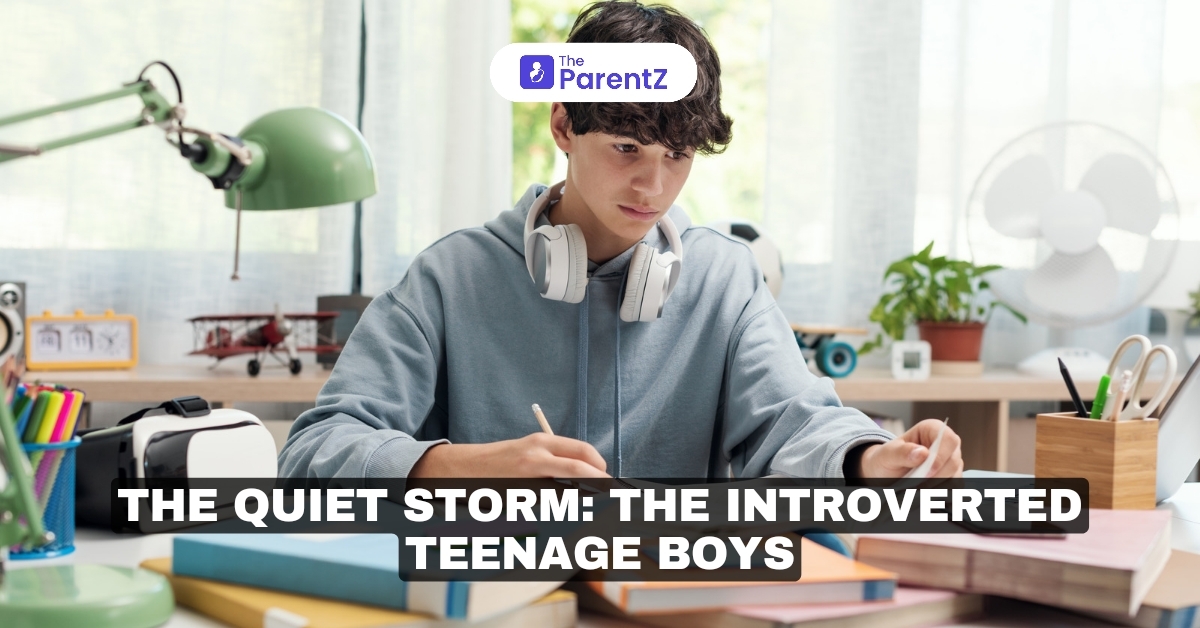Imagine being a teenage boy in a crowded school hallway, feeling the weight of everyone's eyes on you. While others seem to effortlessly make friends and join in conversations, you may find yourself drawn to the quiet corners, seeking solace in solitude. The pressure to be outgoing, loud, and assertive can be overwhelming, leaving you feeling like an alien in a foreign land. If you are feeling like this, this blog is for you!
The Struggles of Being an Introverted Teenage Boy
Being a teenager is tough enough without the added pressure of fitting into societal expectations. For introverted boys, the challenges can feel magnified:
- Social Anxiety: They experience significant anxiety in social situations. The thought of attending a party or meeting new people can induce panic. They may worry about being judged or feel like everyone is watching them, which can lead to avoiding social events altogether.
- Difficulty Making Friends: They may need help initiating conversations or connecting with peers, which can make forming friendships difficult and lead to loneliness. They often prefer deep, meaningful connections over superficial interactions, which can be hard to find in the fast-paced world of adolescence.
- Fear of Rejection: The fear of rejection or ridicule can be paralyzing. This fear may prevent them from asking questions or seeking help when they need it, further isolating them from their peers.
- Pressure to Conform: Society often equates masculinity with extroversion—being assertive, competitive, and outgoing. They may feel pressured to act against their nature to fit in, which can lead to internal conflict and stress.
- Nostalgia for Simpler Times: As they transition into adolescence, many boys reminisce about childhood when life was simpler—when getting high meant swinging on the playground and protection meant wearing a helmet. This longing for innocence can amplify feelings of anxiety as they navigate the complexities of teenage life.
Understanding Their Perspective
From the viewpoint of an introverted teenage boy, the world can feel overwhelming. They might think:
- "Why does everyone expect me to be social when I just want to be alone?"
- "What if I embarrass myself when I try to talk to someone new?"
- "I miss the days when my biggest worry was who would win at tag."
These thoughts reflect a deep-seated fear and anxiety that many boys face daily. They may feel like they are constantly battling against societal norms that dictate how they should behave.
Supporting Introverted Teenage Boys
As parents, understanding and supporting your introverted son during these challenging years is crucial. Here are some strategies to help him navigate this turbulent time:
- Encourage Open Communication: Create a supportive environment. Encourage him to share his thoughts about social situations that make him anxious. Listen actively and validate his feelings; let him know it's okay to feel overwhelmed.
- Respect His Need for Solitude: Introverts recharge by spending time alone. Respect his need for downtime and avoid pushing him into social situations he's uncomfortable with. Instead of forcing him into large gatherings, suggest smaller get-togethers where he might feel more at ease.
- Support His Interests: Encourage your son to engage in activities that align with his interests and strengths. Whether it's art, music, or individual sports, finding passion projects can help boost his confidence and provide opportunities for social interaction in less intimidating settings.
- Help Him Develop Social Skills: Provide opportunities for your son to practice social skills in a low-pressure environment.
- Limit Comparisons: Avoid comparing your son's social behavior with that of his peers or siblings. Every child is unique; instead of focusing on what he lacks socially, celebrate his strengths and interests.
- Seek Professional Help: If your son is struggling with anxiety or depression, consider seeking professional help.
- Be Patient: Understand that introversion is not a flaw but a personality trait that comes with its own set of strengths—like creativity and deep thinking. Be patient as he navigates these years; remind him that it's okay to take things at his own pace.
Conclusion
Raising an introverted teenage boy comes with its own challenges, but it also offers unique opportunities for growth and connection. By understanding their fears and anxieties while providing support and encouragement, parents can help their sons navigate this complex stage of life with confidence.
Remember that introverted boys are not alone in their struggles; many others share similar experiences. By fostering an environment where they feel accepted for who they are—quiet storms full of potential—they can learn to embrace their introversion as a strength rather than a limitation. With your love and understanding, they will find their way through the noise of adolescence into a future where they can thrive on their own terms.





Be the first one to comment on this story.